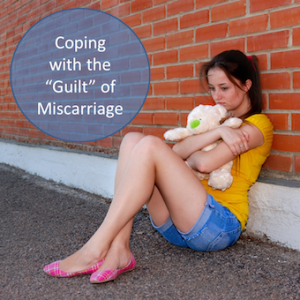What is Guilt?
Guilt, quite simply, is unresolved anger that we have turned inward against ourselves. It is usually related to something that we have or haven’t done.
Guilt can also feel like shame and denial and leaves us restricted mentally, emotionally and often physically.
Guilt and Shame – the Connection
Guilt can also lead us to bury our fears and secret beliefs about our actions deeper inside for fear of being found out. Ultimately, when left to fester, guilt progresses to shame and eventually results in feelings of unworthiness.
Healthy Guilt
Guilt can be healthy to a certain degree. Genuine guilt is an emotional response from our conscience that enables us to stay true to our values or return to behaving in a manner consistent with our beliefs and principles. There is clearly a place in our lives for guilt in terms of keeping us on track. The problems arise when we cannot forgive ourselves and let go.
Guilt in Pregnancy Loss: “What Did I Do Wrong?”, “What Didn’t I Do?”
Guilt in pregnancy loss can come from perceived action or inaction at any part of the process, as early as pre-conception.
Overwhelmed with Messages and “Advice”
We are bombarded by articles and television advertising about pre and post-conception care: “Take this vitamin at least three months before”, “eat this”, “don’t do that”.
All of these mixed messages that can easily drive us to the point of frustration. It is easy to see why we can feel overwhelmed and then turn on ourselves when things don’t work out as we had hoped.
Throughout pregnancy the messages keep coming, regardless of whether they are welcome.
Our own expectations grow with every piece of knowledge we gain. As a result, the height from which we will fall in the event of something detrimental happening to our babies becomes greater.
Sources of Guilt After the Pregnancy Loss
The guilt associated with pregnancy loss doesn’t stop just because the physicality of the loss has passed.
The decisions we are forced to make in the moment (“Should we name the baby?” or “Should I see and hold the baby?”) all lend themselves to being judged and second guessed in later weeks, months and years.
With all of the varying responsibilities, and the decisions that we are asked to make, there is a high probability that we will do (or not do) something that we will later feel some level of guilt about.
The challenge with such a tragic event is that we are confronted with a range of unappealing options and we have to choose anyway. Regardless of which decision we make, there will be an element of associated guilt or regret.
The Key Question: How Will We Live With Our Decisions?
The question then becomes not whether we experience guilt or not, but how we live with our decision.
Guilt Does Not Just Go Away
The difference between guilt and other emotions is that guilt is not usually transitory.
While anger and sadness come and go as we recall the events that caused them, guilt is with us constantly.
Over time guilt becomes less noticeable – even though it is gradually eating at us.
Healing Starts with Acknowledging the Guilt
Feeling guilty is not bad, but prolonged, unresolved guilt becomes harmful to our healing. The only way to address guilt is to first acknowledge that it is there. This can be a challenge because it doesn’t show itself as obviously as the others types of anger.
Once we explore the event that resulted in guilt and confirm that there was no action we could have taken to change the outcome with the information that we had at that time, we can express the underlying anger that perpetuates it and start to let go.



